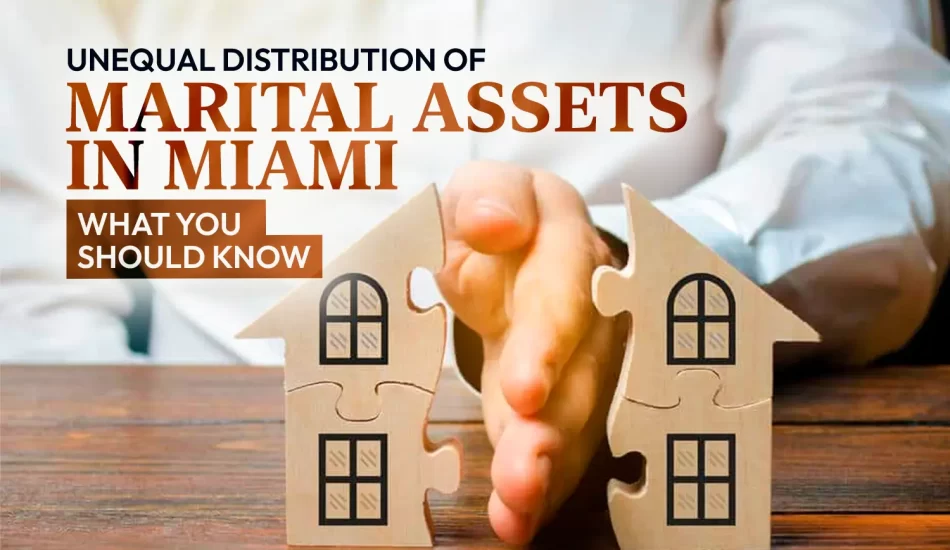|
|
Last
Modified on
Jan 07, 2025
Divorce and asset division in Miami, FL, often involve the term “equitable distribution.” But what does this term mean, and why might one spouse end up with more than the other? This article will examine the concept of “unequal distribution” and the factors that can influence this outcome in your divorce case.
What is unequal distribution?
In a Florida divorce, the court guides asset division based on the principle of equitable distribution. However, it is essential to note that “equitable” does not always mean “equal.” In certain situations, as outlined in F.S. §61.075(7), the court may opt for an unequal distribution to ensure a fair post-divorce outcome for both parties.
Economic Circumstances Matter
The economic circumstances of each spouse play a crucial role in the potential for unequal asset distribution. For instance, if one spouse has significantly higher income or earning potential, the court may allocate more assets to the spouse with fewer financial resources. They do this to achieve a more balanced economic outcome and to maintain a reasonable post-divorce standard of living for both parties.
Recognizing Contributions to the Marriage
Contributions to the marriage are also essential factors in asset distribution. Florida recognizes both monetary (income and property acquired during the marriage) and non-monetary (homemaking and child-rearing activities) contributions. If one spouse made substantial contributions, be they financial or non-financial, the court may grant them a larger share of assets as recognition for their efforts.
Considering the Length of the Marriage
The duration of the marriage is another critical consideration. In longer marriages, the court may be more inclined to distribute assets unequally to ensure fairness. This is especially true if one spouse has been financially dependent on the other for a long time or has sacrificed career opportunities for the family’s sake.
Other Relevant Factors
In addition to the abovementioned factors, the court considers various other factors relevant to your case. These factors can include the age and health of each spouse, the presence of minor children, the contributions of each spouse to the acquisition, enhancement, or production of marital assets, and any other factor deemed necessary for a fair and just distribution.
It is essential to understand that the judge has the final say regarding unequal asset distribution. The court carefully evaluates all relevant factors based on the case’s specific circumstances, working toward a fair outcome.
Final Words
Going through a divorce and asset distribution can be overwhelming. This is where an experienced divorce attorney in Miami, FL, can be invaluable. Consulting with a trusted attorney is crucial for understanding how these factors apply to your situation and how you can protect your rights during the asset division process.
If you are facing a divorce in Miami and have questions about asset distribution, don’t hesitate to contact us at the Kirlew Law Firm, one of the best law firms in Miami. Our lawyers are highly skilled in divorce litigation and can help protect your interests, ensuring a fair distribution of assets in your specific case. Call us at (305) 521-0484 for a Free Phone Consultation!




